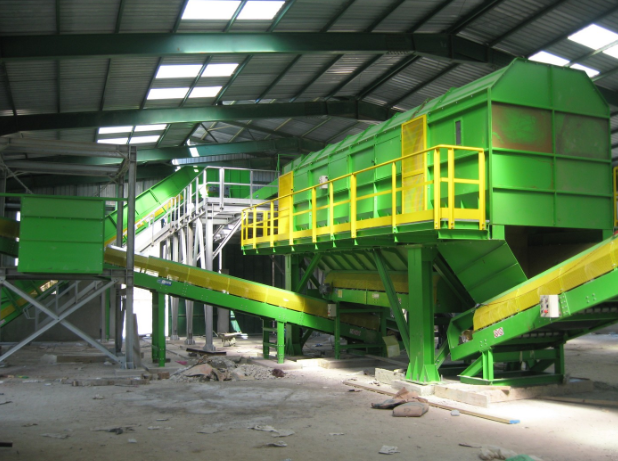In industries such as waste management, mining, construction, and recycling, efficient separation and screening of materials are crucial for maximizing productivity. A trommel screen is an essential piece of equipment in these industries, offering an effective solution for sorting and sifting materials. Whether you’re involved in waste processing, composting, or aggregate production, understanding how trommel screens work and why they are indispensable can help you optimize operations and improve efficiency.
What is a Trommel Screen?
A trommel screen is a large, rotating cylindrical drum used to separate materials by size. It consists of a perforated cylindrical drum that rotates, allowing material to be sifted through the holes based on its size. The drum is typically inclined slightly to facilitate the movement of materials through the screen. The key to its design is that it offers high efficiency in separating various sizes of materials while handling large volumes.
Trommel screens are most commonly used to screen waste, compost, and aggregates, separating valuable materials from waste or smaller particles from larger ones. The rotating motion of the drum combined with the various mesh sizes or perforations allows for effective sorting of material streams.
How Does a Trommel Screen Work?
A trommel screen works through a simple yet efficient mechanism. The feed material is loaded into the rotating drum, which is typically powered by a motor or engine. As the drum rotates, the material moves through the cylindrical drum, and the particles are sifted based on their size. Smaller particles pass through the perforations or mesh, while larger particles remain inside the drum and are discharged at the end.
The perforations in the drum are designed to accommodate the specific material you are working with. For example, larger perforations may be used to sift through heavy materials like rocks, while smaller holes may be used for composting or separating smaller debris from larger pieces.
The movement of the drum itself helps the material tumble, breaking apart clumps and allowing finer materials to fall through. The rotating drum also keeps the material evenly spread, preventing clogging and ensuring efficient screening.
Why Trommel Screens Are Essential for Your Business
- Efficient Separation
Trommel screens are invaluable when it comes to sorting materials by size. Whether you’re sifting through soil, sand, gravel, or waste, trommel screens help ensure that only the desired particle size remains, improving the quality and consistency of your output. By sorting materials quickly and accurately, businesses can process more materials in less time, ultimately increasing efficiency. - Versatility Across Industries
Trommel screens are used across a range of industries, including waste processing, mining, composting, and recycling. Their ability to screen diverse materials like soil, rock, sand, compost, and waste makes them an essential piece of equipment in many businesses. The versatility and adaptability of trommel screens make them a critical asset in many processes, from sorting organic waste for composting to separating ores in mining. - Durability and Longevity
Trommel screens are designed to withstand tough working conditions. They are made from durable materials like steel, ensuring they can handle harsh environments and heavy-duty operations. This durability means that businesses can rely on trommel screens for long-term use, which results in a higher return on investment (ROI). - Reduced Labor Costs
Using trommel screens can help businesses reduce labor costs by automating the sorting and separation process. The automation of this task eliminates the need for manual labor, reducing human error and improving consistency. This is especially crucial in industries where large quantities of material need to be processed quickly and efficiently. - Environmental Benefits
In industries like waste processing and recycling, trommel screens play a key role in promoting sustainability. By effectively separating recyclable materials from waste, trommel screens help reduce landfill waste and enhance recycling efforts. The ability to quickly and efficiently separate materials also aids in the production of compost, a natural, eco-friendly fertilizer.
Conclusion
Trommel screens are an indispensable tool for businesses involved in material separation and screening. In industries where efficiency and accuracy are key, a trommel screen is not just an option—it’s an essential piece of equipment that ensures your operations run smoothly. For companies in waste management, investing in a quality Trommel screen can make a significant difference in the overall performance of your waste processing plant, optimizing processes and contributing to a greener future.









